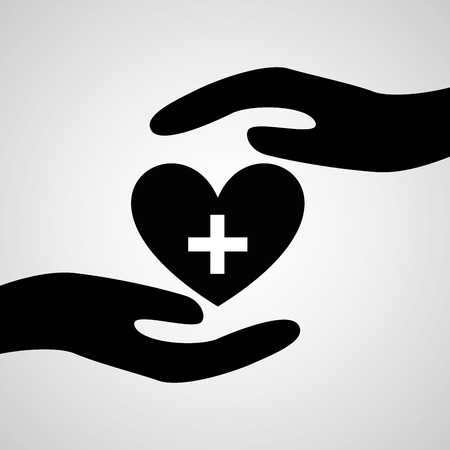Embracing Ayurveda and Traditional Healing
Integrating Indian traditions and values in digital rehab clinics begins with honouring the ancient wisdom of Ayurveda and traditional healing practices. In India, wellness is deeply rooted in the philosophy of balance—balancing the body, mind, and spirit. Digital rehabilitation platforms that embed Ayurvedic principles into their programs offer culturally relevant support to individuals seeking recovery. By incorporating local holistic therapies such as yoga, meditation, and herbal remedies, these clinics create a familiar environment that resonates with Indian clients’ intrinsic values.
Ayurveda teaches that health is achieved through harmony within oneself and with nature. Digital rehab clinics can adapt this approach by offering personalised care plans based on an individual’s dosha (body constitution), dietary recommendations aligned with traditional Indian foods, and mindfulness exercises rooted in age-old practices. This integration not only enhances the effectiveness of rehabilitation but also builds trust among users who see their cultural heritage reflected in their care journey. Ultimately, embracing Ayurveda and traditional healing methods bridges the gap between modern technology and time-honoured Indian wellness philosophies, setting a compassionate foundation for digital recovery services.
2. Family Involvement and Community Support
In India, the family unit and community play a pivotal role in shaping an individual’s identity, values, and recovery journey. Unlike many Western societies that emphasize individualism, Indian culture places collective well-being at the forefront. When integrating Indian traditions and values into digital rehab clinics, acknowledging this interconnectedness is vital for fostering long-term recovery and social acceptance.
The Role of Family in Recovery
Family members are often central figures in decision-making processes, emotional support, and day-to-day care. Their involvement can encourage patients to adhere to treatment plans, reduce stigma related to addiction or mental health issues, and provide a stable support system during challenging times.
Strategies for Family Engagement
| Strategy | Description |
|---|---|
| Regular Family Counseling Sessions | Offer virtual sessions that educate families about addiction and recovery while providing a safe space to express concerns. |
| Cultural Sensitivity Training | Empower clinicians with insights into local customs, languages, and beliefs to facilitate effective communication with families. |
| Family Involvement in Care Planning | Include family input when setting goals and designing personalized rehab plans. |
| Accessible Educational Resources | Provide culturally relevant materials on substance use, mental health, and relapse prevention in regional languages. |
The Power of Community Support
Communities, including religious leaders, local elders, and peer networks, are influential in reducing stigma and promoting acceptance. Digital platforms can bridge geographical gaps by facilitating online support groups, community forums, and mentorship programs led by respected local figures.
Best Practices for Community Integration in Digital Rehab Clinics:
- Collaborate with NGOs and self-help groups rooted in Indian society.
- Create awareness campaigns using familiar cultural symbols and languages.
- Encourage community celebrations of recovery milestones to reinforce positive outcomes.
- Leverage mobile technology to connect individuals with nearby support resources.
By embedding family involvement and harnessing the collective strength of communities within digital rehabilitation frameworks, clinics can create more effective, culturally resonant pathways to healing—ensuring that recovery is not only personal but also supported by those who matter most.

3. Spirituality and Mindfulness Practices
In the Indian context, spirituality is deeply woven into daily life, offering a rich reservoir of practices that can be leveraged in digital rehab clinics.
Integrating Yoga into Therapy
Yoga, with its ancient origins in India, is more than just a physical exercise—its a holistic approach to well-being that unites body, mind, and spirit. Digital rehab programs can incorporate guided yoga sessions focusing on pranayama (breath control), asanas (postures), and relaxation techniques. These not only help manage withdrawal symptoms from excessive digital use but also empower individuals to rediscover their inner balance and resilience.
Meditation for Mental Clarity
Meditation is an integral part of Indian tradition, practiced for centuries to cultivate self-awareness and mental clarity. By introducing meditation modules tailored to individual needs—such as mindfulness meditation or guided visualization—digital rehab clinics can help clients anchor themselves in the present moment. This practice nurtures patience, reduces anxiety linked to digital detox, and fosters a sense of peace rooted in Indian values.
Embracing Religious Customs
India’s diversity of faiths presents an opportunity to personalize spiritual support. Encouraging participation in familiar religious rituals—whether it’s reciting mantras, attending virtual satsangs, or observing daily puja—can offer emotional comfort during the challenging process of digital rehabilitation. These customs ground individuals in their cultural identity and provide communal support crucial for lasting recovery.
Cultivating Resilience Through Tradition
By blending these spiritual and mindful traditions into therapy, digital rehab clinics honour the richness of Indian heritage while empowering individuals to reconnect with their roots. This culturally sensitive approach builds resilience against relapse, ensuring that clients not only recover but also thrive as they regain control over their digital lives.
4. Culturally Sensitive Communication and Language
One of the most effective ways to integrate Indian traditions and values into digital rehab clinics is through culturally sensitive communication. India is a land of linguistic diversity, with over twenty major languages and countless dialects spoken across its vast regions. To build trust and create an environment where participants feel truly understood, it is essential to offer services in local languages and use familiar expressions that resonate with users’ everyday lives.
By adopting local languages such as Hindi, Tamil, Bengali, Telugu, Marathi, or Malayalam, digital rehab clinics can break down barriers and reach a broader spectrum of individuals seeking help. When professionals communicate in the participant’s mother tongue, it not only improves comprehension but also fosters a sense of belonging and safety.
The Power of Relatable Idioms and Examples
Using idioms, proverbs, and stories that are rooted in Indian culture helps make therapeutic concepts more relatable. For example, drawing parallels between personal recovery journeys and well-known tales from Indian epics like the Ramayana or Mahabharata can provide powerful metaphors for resilience and transformation. This approach makes abstract ideas tangible and relevant, supporting deeper engagement among participants.
Building Trust through Cultural Relevance
Trust is the cornerstone of any rehabilitation process. Participants are more likely to open up about their struggles when they feel respected and understood within their cultural context. By referencing festivals, family structures, or traditional healing practices such as yoga and Ayurveda in discussions or therapy materials, digital rehab platforms signal respect for participants’ heritage.
Examples of Culturally Sensitive Communication Strategies
| Strategy | Example | Cultural Impact |
|---|---|---|
| Local Language Support | Offering counseling sessions in Kannada or Gujarati | Makes services accessible to non-English speakers |
| Cultural References | Relating self-discipline in recovery to Lord Ganesha’s wisdom | Enhances relatability and motivation |
| Use of Proverbs & Idioms | “Rome was not built in a day” translated as “Dheere dheere se hi sab kuch hota hai” | Reinforces patience using familiar phrases |
| Incorporating Festivals | Scheduling group sessions around Diwali or Eid celebrations | Shows respect for religious observances |
| Family-Centric Approach | Involving elders in therapy discussions when appropriate | Aligns with joint family values |
Culturally sensitive language is not just about translation; it is about context, empathy, and respect for each participant’s unique identity. Digital rehab clinics that prioritize these elements are far more likely to succeed in fostering lasting connections and meaningful recovery outcomes among India’s diverse communities.
5. Festivals, Rituals, and Social Structures
In the Indian context, festivals and rituals are more than just cultural observances—they are powerful tools that bind communities and reinforce core values. Digital rehab clinics can greatly benefit from incorporating these traditions into their recovery programs. By aligning the rehab process with celebrated festivals such as Diwali, Holi, or Pongal, clinics can create culturally resonant milestones that foster motivation and a sense of achievement among participants.
Leveraging Festivals for Motivation
Indian festivals often signify new beginnings, gratitude, and self-improvement. Rehab clinics can harness the spirit of renewal during Navratri or Ugadi to encourage clients to set digital wellness goals. Organizing virtual group activities like rangoli competitions or traditional song sessions helps participants reconnect with their roots while shifting focus away from unhealthy screen habits.
Rituals as Supportive Habits
Daily rituals—such as morning prayers, yoga, or family meals—can be integrated into digital detox routines. Encouraging clients to start their day with Surya Namaskar or evening aarti not only provides structure but also replaces compulsive device use with mindful practices. These small yet meaningful rituals support emotional healing and offer a familiar anchor throughout the recovery journey.
Strengthening Social Bonds through Community
Social structures in India place great emphasis on family and community connections. Digital rehab clinics can involve family members in group therapy sessions, especially during festival times when togetherness is celebrated. Hosting online satsangs or collaborative pujas allows individuals in recovery to experience collective support, reinforcing positive behavior changes and reducing feelings of isolation.
By thoughtfully integrating Indian festivals, rituals, and social frameworks into digital rehabilitation programs, clinics create a nurturing environment where clients feel understood, motivated, and empowered to build healthier digital habits rooted in tradition.
6. Ethical Values and Respectful Boundaries
When integrating Indian traditions and values in digital rehab clinics, it is essential to reflect on how the protocols align with the country’s deep-rooted moral framework. Indian society places immense importance on ethical conduct, respect for others, and upholding the dignity of every individual. In this context, digital rehabilitation services must consciously weave these principles into their approach. Therapists and staff should be trained to maintain respectful boundaries, ensuring that interactions—whether verbal or non-verbal—honour the personal space and modesty expected in Indian culture.
Moreover, privacy is not only a technical necessity but also a cultural expectation. Participants in digital rehab sessions must feel secure that their information and experiences are treated with utmost confidentiality, reflecting the traditional value of trustworthiness (विश्वास). Practitioners should use language and gestures that are culturally sensitive, steering clear of anything that may seem intrusive or disrespectful. By creating an environment that embodies the values of respect (आदर), humility (विनम्रता), and compassion (दया), clinics can build stronger therapeutic relationships and foster genuine healing.
Finally, involving families respectfully—without crossing personal boundaries—is crucial in the Indian context, where family plays a pivotal role in recovery journeys. Setting clear guidelines for involvement, maintaining transparency, and always seeking consent help ensure everyone feels valued and protected. By honouring these ethical commitments, digital rehab clinics can provide care that not only heals but also uplifts participants with the grace and dignity they deserve.

